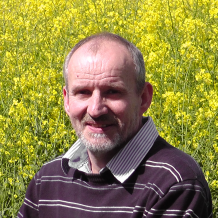Professor Ian Bancroft
CNAP Chair of Plant Genomics
Research
The group’s research focuses on the relationships between genome evolution and the control of characteristics of plants that are of relevance to food security, industrial biotechnology or the environment. We use Brassica napus (a species that includes oilseed rape and several other crop types) as a model system for studying the evolution of polyploid genomes under breeding selection. Exploiting comparative genomics and the transcriptome as a means of analysis of both gene sequence variation and gene expression variation we are uncovering the genetic bases of variation for a range of traits, including fatty acid composition and Vitamin E content of seed oil.
In addition to the work on Brassica species, the group’s research includes the deployment to a range of species of the transcriptomics technology that the group developed to associate trait variation with molecular markers based on both gene sequence variation and gene expression variation, a technology termed Associative Transcriptomics.
Teaching and scholarship
![]()
My aim as a teacher is to engage students and establish a firm foundation of knowledge from which to stimulate critical thinking and promote understanding.
![]()
My lectures cover advanced topics in genomics-led crop improvement.
![]()
My tutorials include consideration of the wide range of options available for crop genetic improvement.
![]()
Projects offered are aligned to the on-going research conducted by my lab group. The sort of techniques and skills the student will learn are firmly founded in plant genomics and cover a wide range of developmental and chemical analyses.

Contact details
Centre for Novel Agricultural Products

